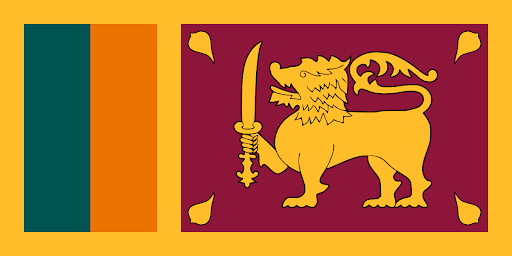Sri Lanka’s Ambitious Bid to Join BRICS
Sri Lanka has set its sights on joining BRICS, the influential intergovernmental organization comprising Brazil, Russia, India, China, and South Africa. This ambition, articulated by Sri Lankan Foreign Minister Ali Sabry, underscores the country’s strategic move to bolster its economic and geopolitical standing on the global stage. With BRICS recently expanding to include Egypt, Ethiopia, Iran, Saudi Arabia, and the United Arab Emirates, the group’s significance in international affairs is more pronounced than ever.
The Strategic Importance of BRICS Membership
Joining BRICS represents a multifaceted opportunity for Sri Lanka. Economically, it provides a platform to diversify partnerships and attract much-needed investments. This is particularly crucial for Sri Lanka, which has been grappling with severe economic challenges. In 2022, Sri Lanka's GDP contracted by 8.4%, and the country faced its worst financial crisis in decades, marked by soaring inflation rates that peaked at 69.8% in September 2022. By joining BRICS, Sri Lanka hopes to tap into new markets and secure financial aid and investment from fellow member countries, thus stabilizing and revitalizing its economy.
Geopolitically, BRICS membership allows Sri Lanka to maintain a balanced relationship with major global powers, ensuring its relevance and influence in regional dynamics. The group's collective GDP accounts for about 31.5% of global GDP, and with the recent additions, BRICS nations now represent over 42% of the world’s population. This demographic and economic clout positions BRICS as a counterbalance to Western-dominated institutions like the IMF and the World Bank.
BRIC+S: Unlocking Opportunities, Building Tomorrow – Invest in Unity Today! Read this book now...Hurry!!!
Link:- https://amzn.to/3QX8W9w
India’s Crucial Role in Sri Lanka’s BRICS Aspirations
Central to Sri Lanka’s BRICS ambitions is securing India's support. As a prominent member of BRICS and a close neighbor, India’s endorsement is vital. Minister Sabry has emphasized that Sri Lanka would first seek India's backing before making a formal application to join the group. This move aligns with India’s “Neighbourhood First” policy and Vision SAGAR (Security and Growth for All in the Region), which position Sri Lanka as a key partner.
India and Sri Lanka share a deep-rooted historical and cultural connection, which has been fortified by strategic economic and military cooperation. Bilateral trade between the two countries stood at USD 5.2 billion in 2022, with India being one of Sri Lanka’s largest trading partners. The strong bilateral relations have been reinforced through high-level visits and collaborative initiatives. For instance, Sri Lankan President Ranil Wickremesinghe’s visit to India in July 2023 marked a significant step in strengthening these ties. During this visit, discussions were held on a range of issues, including defense cooperation, economic collaboration, and infrastructure development.
Economic Diversification and Investment Opportunities
For Sri Lanka, joining BRICS could open up substantial economic opportunities. BRICS nations have established the New Development Bank (NDB), which aims to mobilize resources for infrastructure and sustainable development projects in member countries. Access to funding from the NDB could be a game-changer for Sri Lanka, providing the financial impetus needed for large-scale infrastructure projects. Additionally, increased trade with BRICS countries could help Sri Lanka reduce its dependency on Western markets and mitigate the risks associated with economic sanctions and global market fluctuations.
Geopolitical Balancing and Strategic Alliances
Geopolitically, BRICS membership could help Sri Lanka balance its relations with major global powers. China and India, both BRICS members, have significant investments in Sri Lanka. China’s Belt and Road Initiative (BRI) has seen considerable investment in Sri Lanka’s infrastructure, including the Hambantota Port and the Colombo Port City project. On the other hand, India has focused on cultural ties, economic assistance, and defense cooperation. By joining BRICS, Sri Lanka can leverage its relationships with both countries, ensuring it remains a key player in regional geopolitics.
Challenges and Future Prospects
However, Sri Lanka faces challenges in this endeavor. Navigating the internal dynamics of BRICS, where major powers like China and India often have differing interests, will require diplomatic finesse. Additionally, Sri Lanka must align its internal policies with the standards expected by BRICS members, ensuring that it can meet the group's economic and political expectations. This includes implementing reforms to improve its business environment, enhancing governance, and ensuring sustainable economic policies.
In conclusion, Sri Lanka’s bid to join BRICS is a calculated move to enhance its economic growth and geopolitical stability. With India’s crucial support, Sri Lanka hopes to leverage BRICS membership to secure a more prominent role on the global stage. The success of this ambition will depend on Sri Lanka’s ability to diplomatically align with BRICS’ broader objectives and effectively manage its internal policies to meet the group’s standards. By doing so, Sri Lanka can not only stabilize its economy but also enhance its strategic importance in the region.

Comments